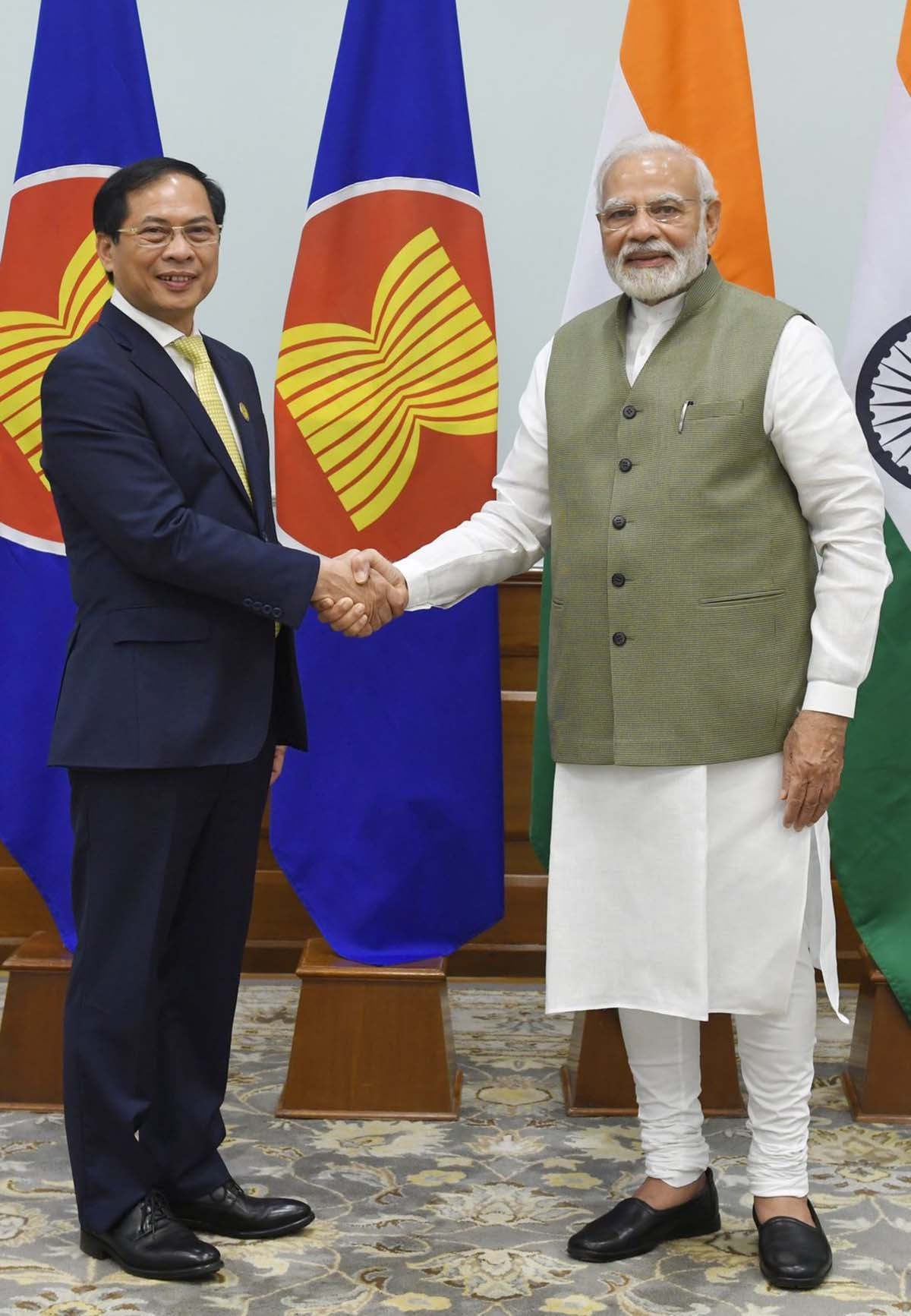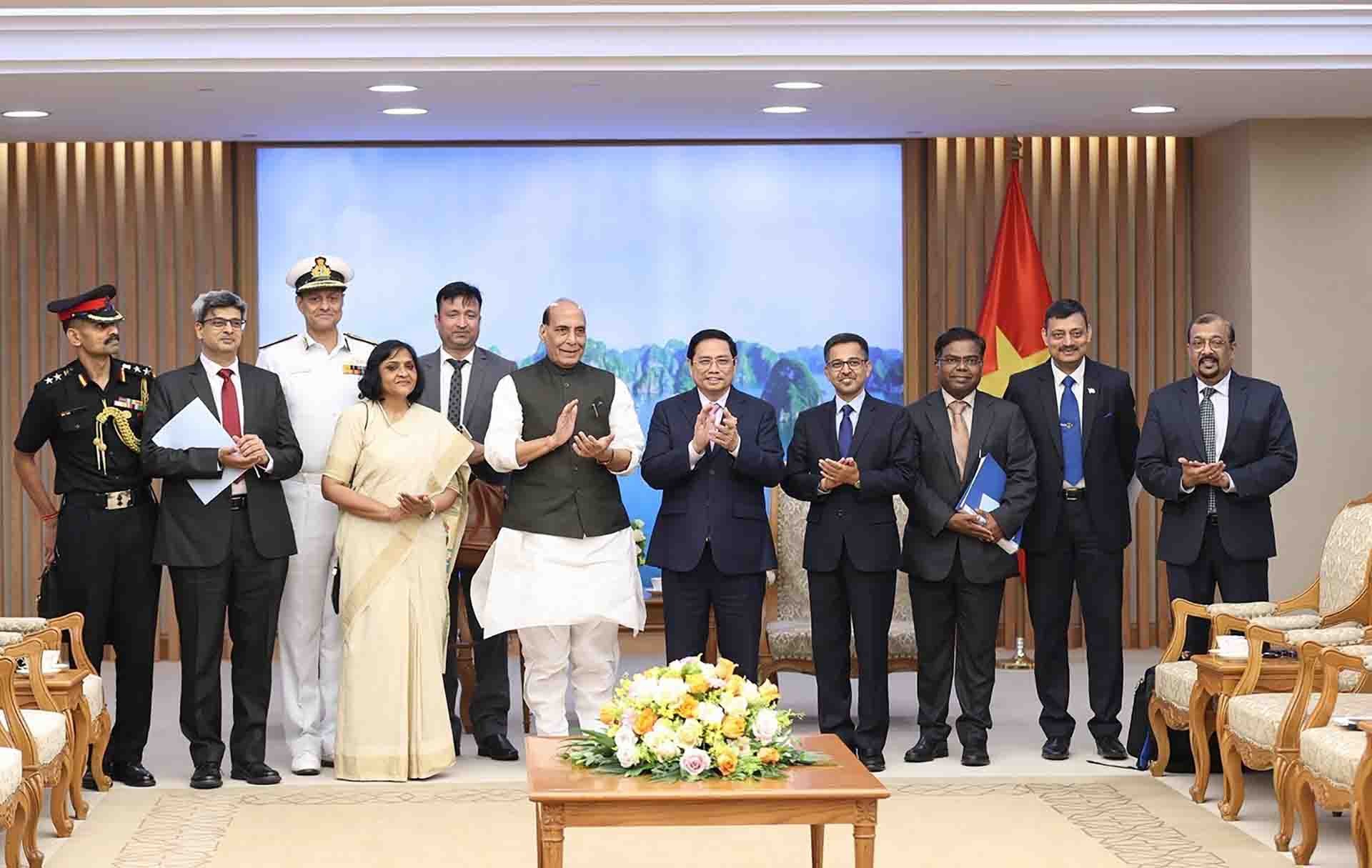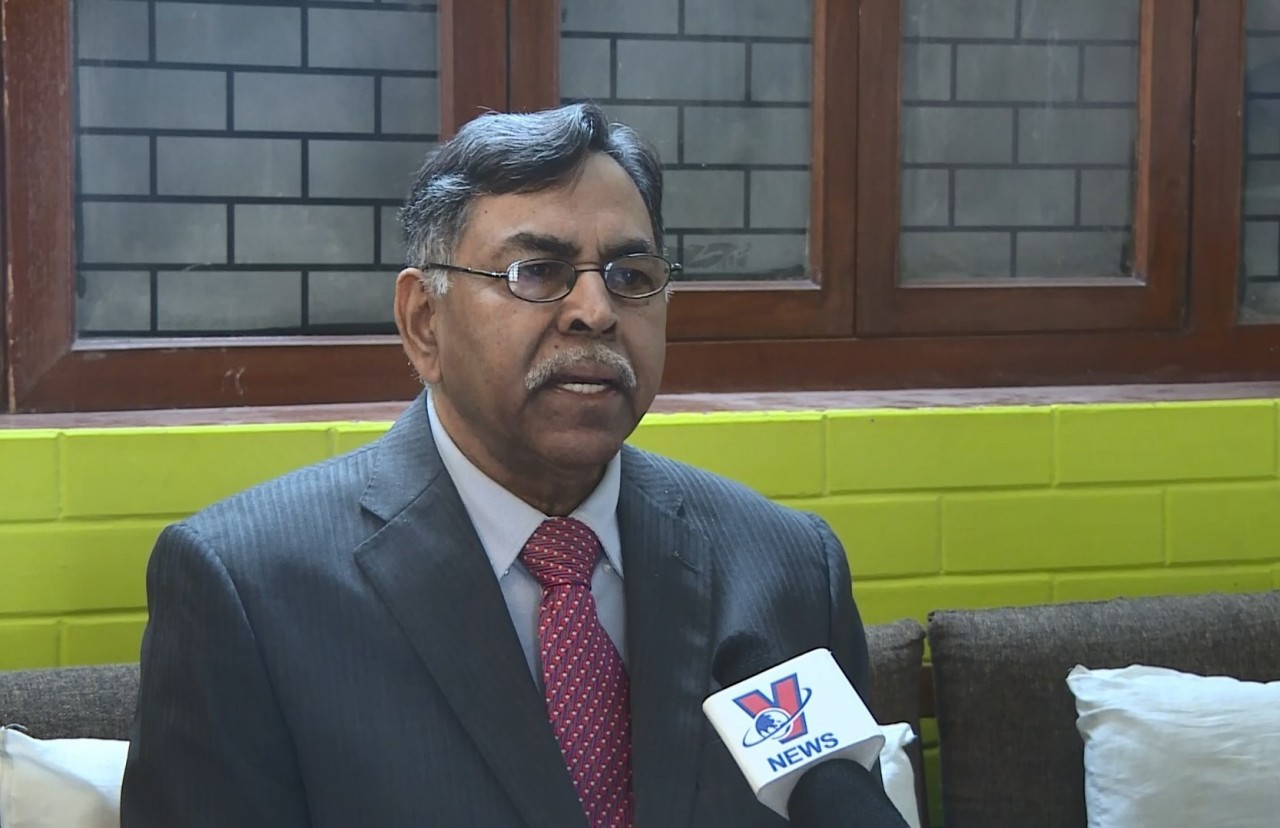
Vietnam is the anchor in India’s Act East strategy in Asia: Expert
Latest
 |
| FM Bui Thanh Son (L) pays a courtesy call to Indian PM Narendra Modi on June 16th, 2022, during the former's visit to New Delhi to attend the Special ASEAN-India Foreign Ministers Meetings. (Source: VNA) |
Recently, Vietnam and India have celebrated their 50th year of bilateral relations with numerous activities including high-level visits, meetings, cultural events, and people-to-people exchanges. What is your perspective on Vietnam-India’s traditional friendship, and comprehensive strategic partnership? In your opinion, which were the most memorable milestones?
It is not appropriate to give importance to one aspect and downplay the others. All aspects are important in contributing to the overall strengthening of bilateral relations.
This being said, though the people-to-people exchanges have remained important and relevant, the strategic dimensions of the relations have assumed greater salience in view of the changing security scenario in the region that demands greater coordination.
But as I said, all aspects are significant and have their relevance in the respective domains.
As India is actively promoting the implementation of its Act East policy, what can Vietnam do to maximize the benefits and create breakthroughs in bilateral relations, specifically in the economic, cultural sector and people-to-people exchange?
India views Vietnam as the anchor in its Act East policy strategy in greater Asia. This is backed by historical ties and reinforced by constant contacts via high-level visits from each other's countries.
 |
| PM Pham Minh Chinh receives Indian Defence Minister Rajnath Singh in Hanoi on June 8th. (Photo: VNA) |
A good political understanding at the governmental level will lay out the environment for other aspects of the relationships to blossom for mutual benefits.
Can you share opportunities and challenges ahead of bilateral relations in the current context? What can India and Vietnam do to take advantage of such opportunities and to overcome challenges?
I have always argued that both India and Vietnam must not confine themselves to dealing with all issues, whether those are bilateral or regional among themselves, but take on board other countries in the region with which both share common viewpoints.
For example, an India-Vietnam-Japan trilateral framework is urgently needed as the three countries have plenty in common and each can support the other in deepening economic and security/strategic cooperation.
In particular, the three countries have a lot to contribute to securing the South China Sea, where China’s assertiveness is a matter of worry. A single country must not be allowed to take control of the global common which is detrimental to the interests of others.
Vietnam has played an increasingly important role in ASEAN. Meanwhile, India has continuously stressed that ASEAN is an important pillar in its foreign policy. Therefore, what can Viet Nam and India do to further Indo-ASEAN relations, as well as ASEAN centrality in Indo-Pacific?
As I said, Vietnam is the lynchpin in India’s Act East strategy. India is committed to engaging economically, politically, and culturally to deepen cooperation with the ASEAN bloc, not only with Vietnam alone, and Vietnam’s cooperation to make this possible is invaluable. If greater synergy is found in this cooperative approach, it would be for regional good, aside from strengthening bilateral ties.
As regards ASEAN centrality, it is a matter of worry as China is leveraging its economic power to influence the policies of certain members of the ASEAN bloc. Vietnam and India can discuss ways to create common synergy within the bloc so that the centrality of the organization is not marginalized or weakened.
Prof. Rajaram Panda is currently Senior Fellow at the Nehru Memorial Museum and Library, New Delhi. Earlier, he was Senior Fellow at IDSA, ICCR; Chair Professor at Reitaku University and Lok Sabha Research Fellow, Parliament of India. He is also a Member of the Governing Council, Indian Council of World Affairs, and the Centre for Security and Strategic Studies, both in New Delhi. He also had long stints at the Japan Foundation New Delhi. |













